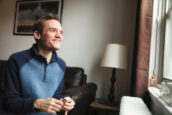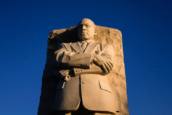
My first attempt at breastfeeding was awkward. In the haze of having just given birth, feeling equally exhausted and elated, and facing the shocking realisation that I was now totally responsible for the care of this precious little human being, I tentatively cradled my baby. We both attempted to figure out this feeding business. I remember how much it hurt in the beginning. That was something other mothers had dutifully warned me about. Eventually my son and I worked it out, and I was blessed to experience the close connection that comes with breastfeeding a child.
By the time my son was five months old, my experience of breastfeeding had moved beyond the initial shock of being required to supply milk on tap around-the-clock, to really enjoying the time we spent cuddling and feeding. Despite the unrelenting breastfeeding routine, I was constantly amazed that my body could supply the nutrition he needed to grow.
I remembered all this after hearing the heartbreaking story of another mother. A mother who came to Australia, seeking asylum and a safe place to raise her child. Baby “Asha” was five months when she and her parents were woken in the early hours of June 4. They were roughly swept away from the Melbourne Immigration Centre onto a plane destined for Nauru. They didn’t know this was coming. No one was told. Not even their lawyer.
Reports from Natasha Blucher — a case worker who assisted the family — were that the mother, clearly under immense stress and anxiety, stopped producing enough breastmilk to feed Asha. She was given formula, but it made Asha sick. This mother had to listen to her baby cry because she was so hungry.
When I look at my own experience of raising a baby, I know I was blessed. I was surrounded by all my family, especially my mother and sisters, as well as a very supportive mother’s group, regular visits to the early childhood clinic and a wealth of health and community services for new parents (including those specifically dedicated to breastfeeding). But Asha’s mother’s experience is so far removed from mine.
Having fled her home country, she no longer has extended family to call on. She and her immediate family are strangers in a new country, hoping they will be accepted here to make a new start. Instead, they have been taken to detention in Nauru.
No place for a baby
Conditions in Nauru are overcrowded and mouldy. Temperatures inside the tents where families stay regularly reach 50 degrees. The toilets overflow. Disease is rampant. It’s not a place for a baby. But, as of 30 April this year, there were 95 children detained in Nauru. More are due to be transferred, including babies like Asha.
While successive Governments have implemented policies which allow for some refugee children to be released into the community, this is clearly not happening enough. Research in the “The Forgotten Children” Report, released by the Australian Human Rights Commission in February, found 85 per cent of children living in detention suffered emotional and psychological damage. The average stay in detention is 14 months. The longer children are kept in detention, the worse it gets. Most scary is the finding that there were 233 assaults, 128 incidents of self-harm, and 33 incidents of sexual abuse that all involved children held in detention.
What happens with asylum seekers in Australia is decided by our political leaders. As an everyday Australian, it is hard not to feel powerless in the face of reports about asylum seekers like baby Asha and her mother and father. But political change starts by changing the conversation – not just in Parliament House, but among each other. In the playground. Around the office. At the pub. On Facebook. In church. On your front steps, with your next-door neighbour.
You are welcome here
That’s why I wanted to write something about this. To talk about how I felt when I read about Asha. To share how it affected me knowing another mother was listening to her sick baby cry because she could no longer produce enough breastmilk.
I wanted to be able to give that mother a hug. I wanted to make her feel welcome in Australia. I wanted to give them a safe place to live.
As a Christian, I believe we are called to extend compassion to all people, especially to those who are the most vulnerable. As Jesus says in Matthew 25:35, “I was hungry and you gave me food, I was thirsty and you gave me drink, I was a stranger and you welcomed me.”
As a fellow human being, I know this is the right way to live with each other. When we welcome the stranger, we are the ones who are gifted, empowered and blessed by this.
And so, I extend that welcome to Asha and her mother and father, on behalf of the rest of Australia: You are welcome here.
Photo courtesy Siobhan Marren
Rebecca Beisler, Communications and Resource Officer, Uniting Church in Australia Assembly
- Categories: Features




























































